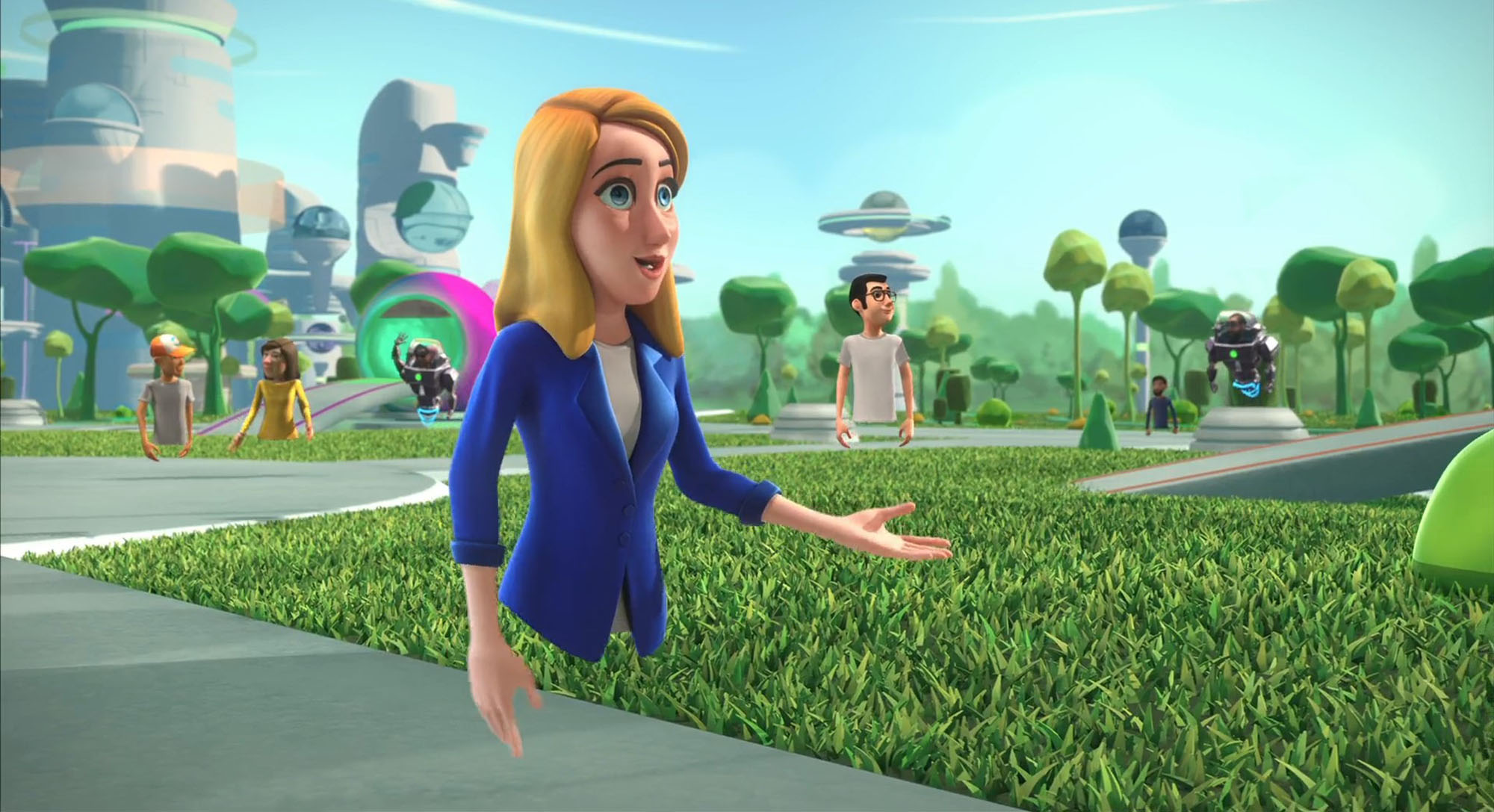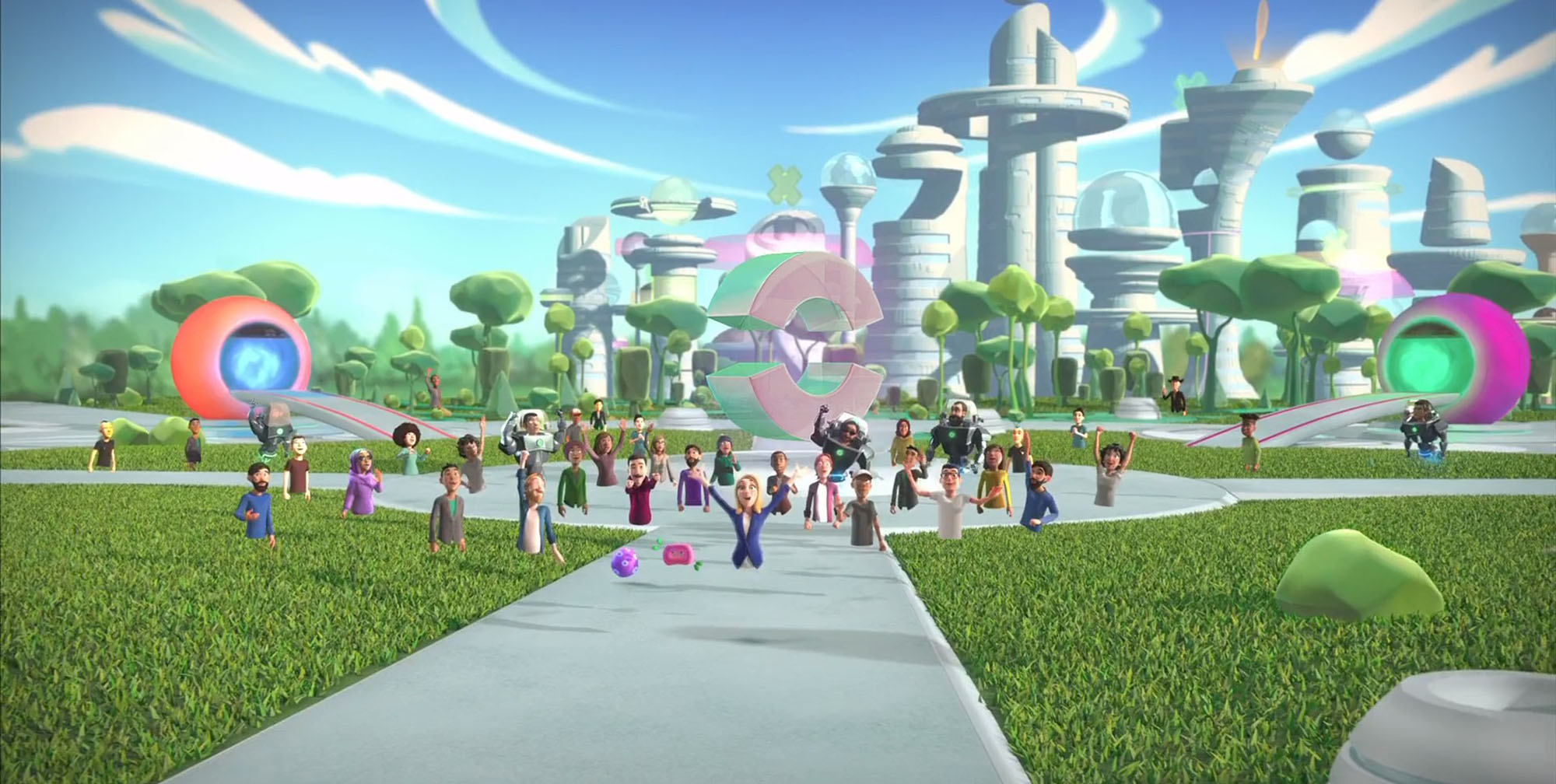Facebook Horizon Brings Social Networking to VR But Are We Ready?
Sounds immersive — and tricky to pull off

SAN JOSE, CA - While Oculus Quest and its upcoming touch control upgrades was the clear star of Oculus Connect 6, we learned that the journey to get a VR headset in every household is far from over. In fact, it’s only getting started.
During the opening keynote, we learned that Facebook will be launching the beta of Facebook Horizon, a virtual social space sometime in 2020. It’s something that Facebook has been pushing for since the company acquired Oculus, but can the social media giant successfully bring its polarizing, yet popular brand of community to virtual reality?
What is Facebook Horizon?

Facebook Horizon is a new social experience that allows you to build your own world. The debut trailer shows off several different worlds, weird, but cute animals and rather diverse avatars. Featuring a variety of skin tones and hair textures, the avatars are attractive and expressive and are obvious evolution of the current Oculus avatars. It’s a cool, fun improvement.
Promising many years of support, Zuckerberg claims Horizon will get bigger and better as you continue to build.
I spoke to Erick Tseng, Facebook VR Product Lead, about the new social experience and how it fits into Facebook’s plans and how the company is working to create safe virtual communities for everyone. One of the first things Tseng mentioned when we started discussing Horizon is that it’s “an extension of the social network that we know today.” However, it’s not just about swapping photos and posting video. He believes the platform will focus on playing games and "creating something magical" together.
Tseng likens the experience to an evolved form of Minecraft.
"Abilities, like the world builder example, is now coming to life in a way that we've never seen before," said Tseng. "Because now I can create my castle on an island and invite my friends over to come hang out. And that to me is why this is like an unbounded experience. I'm hoping in the next six months after launch, that we will actually see beautiful worlds that we never even dreamt of get created by the folks who are going to be living in it."
Get instant access to breaking news, the hottest reviews, great deals and helpful tips.
Creating safe spaces
While the idea of VR communities sounds promising, as Facebook’s various pages, groups and forums have shown, the network is rife for trolling, hate speech and harassment. Having a virtual avatar can add a quasi-physical element to the behavior, complete with ignoring boundaries and inappropriate interactions.
Tseng revealed that Facebook has learned that for now it can’t solely rely on algorithms. The company is also in the process of training over 10s of thousands of human moderators in preparation for Horizon. However, Facebook continues to train machine learning technology, with the hope that over time, the algorithm will improve.
“So from day one of the creation of Horizon, safety has been the top goal,” Tseng explained, “and making sure that this thing is going to feel good and feel safe for everyone in it.”
When Horizon launches, users will have the ability to mute people. You can also create physical space between yourself and a bad actor and actually mandate that people stay away from your avatar. It’s a start, but as Tseng says, “there is a host of learning that we as a company have been going through and understanding how to create safe environments on other existing platforms within Facebook.”
Outlook
So for now, Facebook Horizon is available on an extremely closed beta with plans to expand the service in the near future. I’m not entirely sold on how or even if Facebook can truly create safe spaces in virtual reality, but I am eager to experience VR with my friends and make my own little virtual paradise.

Sherri L. Smith has been cranking out product reviews for Laptopmag.com since 2011. In that time, she's reviewed more than her share of laptops, tablets, smartphones and everything in between. The resident gamer and audio junkie, Sherri was previously a managing editor for Black Web 2.0 and contributed to BET.Com and Popgadget.
